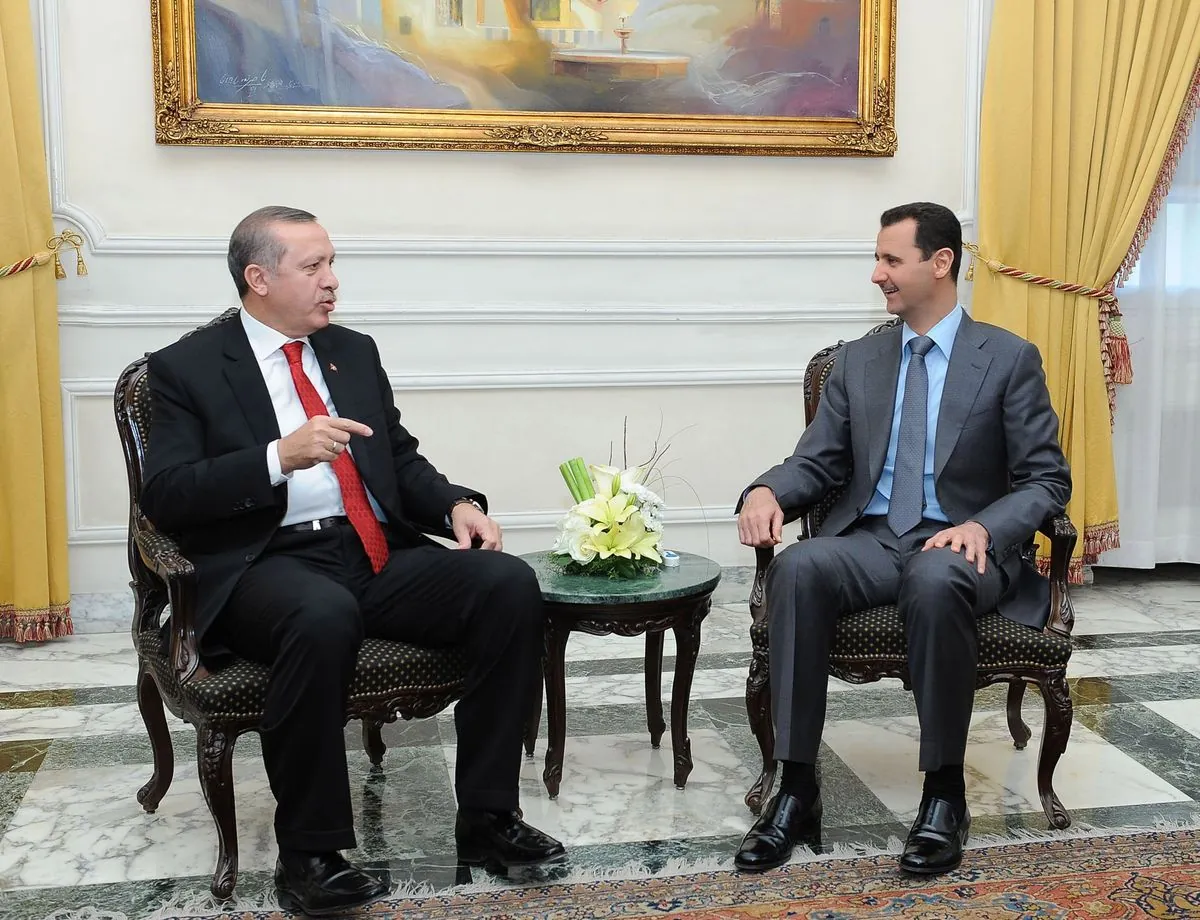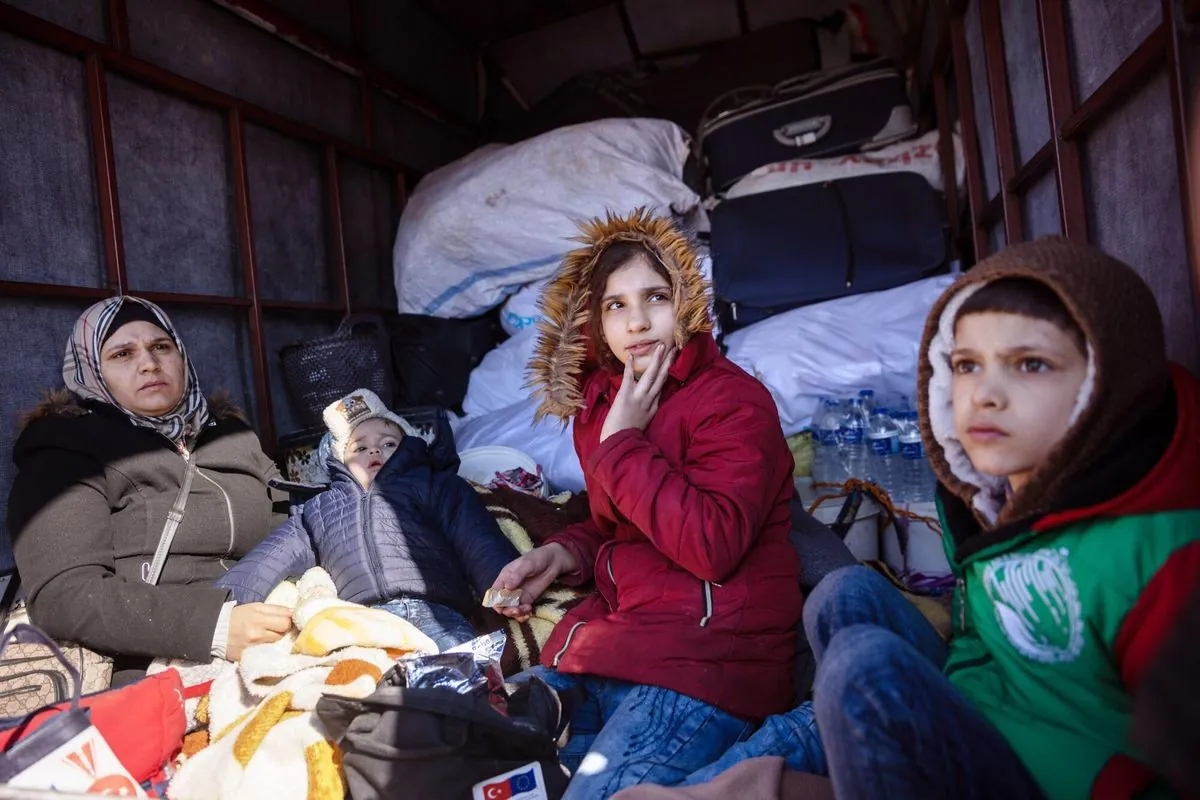Turkey's Syria Outreach: Diplomatic Push Amid Regional Turmoil
Turkey seeks talks with Syria, aiming for refugee returns and border security. Syrian opposition leader cautions on immediate results, as regional conflicts overshadow Syria's ongoing crisis.

Tayyip Erdogan's recent calls for dialogue with Syrian President Bashar al-Assad represent a significant shift in Turkey's approach to its southern neighbor. This diplomatic initiative, while ambitious, faces numerous challenges and is viewed with cautious skepticism by Syrian opposition leaders.
Hadi Al Bahra, president of the National Coalition of Syrian Revolution and Opposition Forces, acknowledges the possibility of an Erdogan-Assad meeting but emphasizes the complexities involved. "Turkey is very eager about this," Bahra stated, highlighting Ankara's understanding of Damascus's current limitations in meeting Turkish demands.
Turkey's motivations for this diplomatic push are multifaceted. Since 2016, Turkish troops have maintained a presence in northern Syria, primarily to counter Kurdish militia groups that Ankara considers a security threat. Additionally, Turkey hosts over 3.8 million Syrian refugees, the largest such population worldwide, and seeks their safe return.
The ongoing conflict in Syria, which began in 2011 as part of the Arab Spring protests, has resulted in a humanitarian crisis of staggering proportions. Over 6.8 million Syrians have fled the country, while millions more are internally displaced. The Syrian economy has collapsed, with over 90% of the population now living in poverty.

Bahra warns that recent regional conflicts, particularly the Israel-Gaza-Lebanon war, have pushed Syria further off the global radar. This shift in international focus risks a "full collapse" of the already fragile situation in Syria. The UN-led political process for Syria, initiated in 2012, remains "frozen" according to Bahra's recent meetings with international delegations.
The complexity of the refugee situation adds another layer of difficulty to Turkey's diplomatic efforts. Many Syrians in Turkey fought against Assad's rule and originate from areas beyond Turkish control in northern Syria. Bahra notes, "They know for a fact they can force maybe 100,000, 200,000 or 500,000 refugees to go back to Syria, but they cannot force 3 million or three and a half million."
Despite these challenges, Turkey persists in its efforts to engage with Syria. Erdogan recently stated, "Millions of people outside Syria are waiting to return to their homeland," emphasizing the urgency of addressing the refugee situation.
The Syrian conflict has seen involvement from multiple international actors. Russia and Iran have been major allies of the Assad regime, while the United States has supported Kurdish forces against ISIS. The conflict has also witnessed the use of chemical weapons and the rise and fall of ISIS control over significant territories.
As Turkey continues its diplomatic push, the international community's attention remains divided. Syria's readmission to the Arab League in 2023 marked a shift in regional dynamics, but substantial progress towards resolving the conflict remains elusive.
"This effort had yielded no results worth mentioning."
The path to reconciliation and stability in Syria remains fraught with obstacles. While Turkey's diplomatic initiatives signal a desire for regional stability, the complex web of interests and the ongoing humanitarian crisis in Syria present formidable challenges to any quick resolution.


































